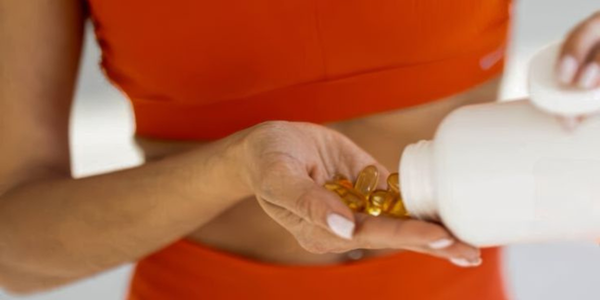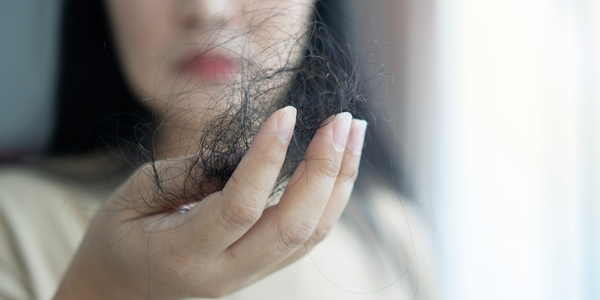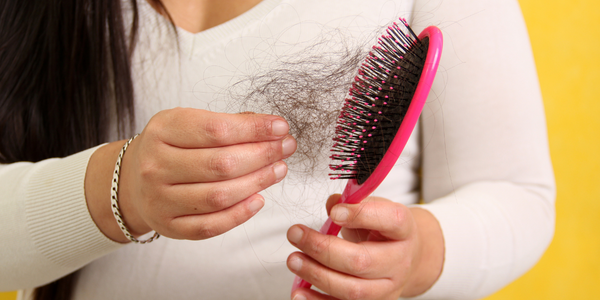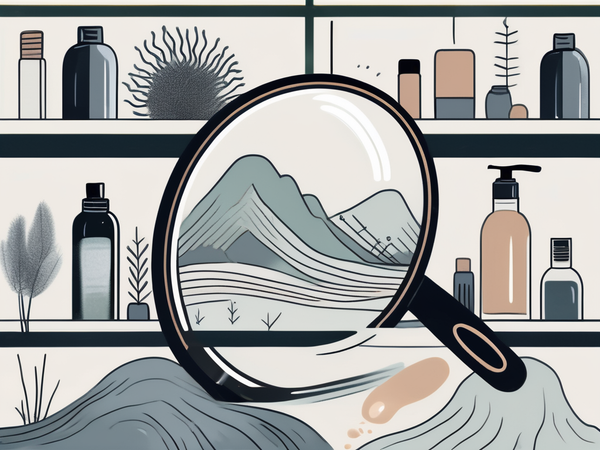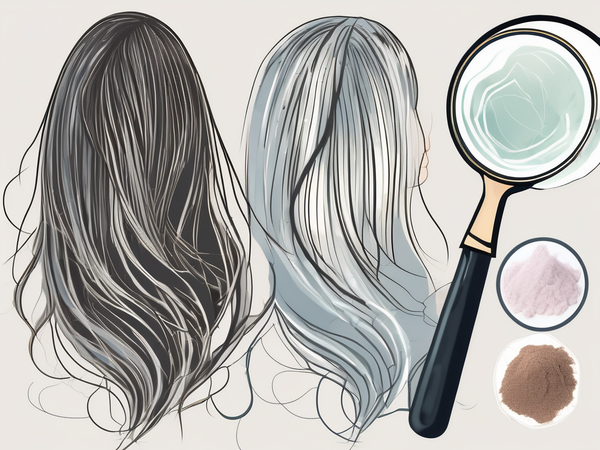Dry and frizzy hair is the last thing you want when you are set from tip to toe to rock the day. Don’t let your hair dictate your mood; take control with these effective tips to manage dry and frizzy hair. We’re discussing everything about frizzy hair, from the science of frizzy hair to vitamins for hair growth, so stay with us.
What causes the frizz?
Frizz in hair is often caused by a lack of moisture and humidity, leading to the hair cuticle (the outermost layer) becoming dry and rough. Hydrogen bonds play a role in the structure of the hair and can contribute to frizz under certain conditions.
1. Weak Hydrogen Bond
Hair is primarily composed of a protein called keratin. The structure of hair involves various types of bonds, including hydrogen bonds. Hydrogen bonds form between the hydrogen atoms of one molecule and the oxygen atoms of another. In the case of hair, hydrogen bonds can form between adjacent protein chains in the hair shaft.
When the hair is exposed to humidity or moisture, the hydrogen bonds in the hair can be affected. Hydrogen bonds are relatively weak compared to other types of bonds in the hair, such as disulfide bonds. When hair absorbs moisture from the environment, the hydrogen bonds can break and reform, causing the hair to swell and become frizzy.
In humid conditions, the excess moisture in the air can be absorbed by the hair, disrupting hydrogen bonds. This causes the hair strands to swell and become uneven, resulting in a frizzy appearance. The outer layer of the hair cuticle may also lift, making the hair more susceptible to humidity and further contributing to frizz.
Can your hair be naturally frizzy?
Yes! If your hair is wavy, curly, or any other shape that’s not straight, you are more likely to have naturally frizzy hair. Why does this happen? One possibility is that the natural oils cannot reach the tip of your hair due to the many curves. When your hair is straight, the oils reach the tip easily, and hence, straight hair will never become frizzy unless it’s highly damaged or broken.
Other causes of dry and frizzy hair
1. Lack of Moisture:
Insufficient moisture in the hair shaft can lead to dryness and frizz. Environmental factors, excessive heat styling, and harsh hair care products can cause this.
2. Overwashing:
Washing hair too frequently can strip away natural oils, leaving the hair dry and prone to frizz. It's essential to balance how often you wash your hair based on your hair type and needs.
3. Heat Styling:
Excessive use of heat-styling tools like flat irons, curling irons, and blow dryers can damage the hair cuticle, leading to dryness and frizz. Using heat-protectant products can help minimize damage.
4. Chemical Treatments:
Chemical processes like bleaching, perming, and coloring can weaken the hair structure, making it more susceptible to dryness and frizz. It's crucial to follow proper aftercare routines for chemically treated hair.
5. Environmental Factors:
Exposure to harsh weather conditions like extreme temperatures can contribute to dry and frizzy hair. UV rays from the sun can also damage the hair's outer layer.
6. Incorrect Hair Care Products:
Hair care products containing harsh chemicals, sulfates, and alcohol can strip away natural oils and contribute to dryness. Opt for products that are moisturizing and suitable for your hair type.
7. Hard Water:
Washing hair with hard water (water with a high mineral content) can leave mineral deposits on the hair, making it feel dry and rough. Using a water softener or clarifying shampoo occasionally can help.
8. Nutritional Deficiencies:
A lack of essential nutrients like vitamins, minerals, and fatty acids can affect the health of your hair. Ensure a balanced diet that supports overall hair health.
9. Hormonal Changes:
Hormonal fluctuations, such as those that occur during pregnancy, menopause, or certain health conditions, can impact the moisture levels in the hair.
10. Genetics:
Some people may be genetically predisposed to have naturally drier hair. In such cases, maintaining a healthy hair care routine becomes even more crucial.
Effective strategies to manage dry and frizzy hair
Controlling dryness and frizziness in hair involves adopting a combination of good hair care practices. Here are some effective ways to manage and reduce dryness and frizz:
1. Use Moisturizing Hair Products:
Choose shampoos and conditioners that are specifically formulated for dry or frizzy hair. Look for products containing hydrating ingredients like glycerin, shea butter, or argan oil.
2. Deep Conditioning:
Incorporate deep conditioning treatments into your hair care routine. Use a moisturizing hair mask or deep conditioner once a week to provide intense hydration to your hair.
3. Limit Heat Styling:
Excessive use of heat-styling tools can contribute to dryness and frizz. If you must use heat, apply a heat protectant before styling and use the lowest effective temperature.
4. Biotin Tablets:
We hardly ever think about vitamins for hair when nutrition is so essential for hair health. Biotin, also known as vitamin B7, is a water-soluble vitamin that plays a crucial role in the health of your hair. Biotin is involved in the production of keratin, a protein that forms the structure of hair, skin, and nails. Adequate levels of biotin can support the synthesis of keratin, promoting stronger and healthier hair.
5. Cool Water Rinse:
After washing your hair, rinse it with cool or lukewarm water. Hot water can strip the hair of natural oils, leading to increased dryness.
6. Avoid Overwashing:
Washing your hair too frequently can strip it of natural oils, leading to dryness. Consider washing your hair 2-3 times per week or as needed based on your hair type.
7. Use a Microfiber Towel or T-Shirt:
Traditional towels can create friction and contribute to frizz. Instead, use a microfiber towel or an old cotton T-shirt to gently blot your hair and minimize frizz.
8. Apply Leave-In Conditioner:
Use a leave-in conditioner or detangling spray to add moisture and manageability to your hair. Apply it to damp hair and distribute it evenly.
9. Protect Hair at Night:
Use a satin or silk pillowcase to reduce friction and prevent hair breakage. You can also protect your hair by loosely braiding or using a silk scarf before bedtime.
10. Trim Regularly:
Regular hair trims help eliminate split ends and prevent further damage. This can contribute to smoother, healthier-looking hair.
11. Natural Oils:
Apply natural oils like coconut, argan, or jojoba oil to the ends of your hair to add moisture and reduce frizz. Be cautious not to overuse oils, especially if you have fine hair.
12. Humidity Control:
In humid weather, use anti-frizz products or styling creams to help control frizz. These products can create a barrier against humidity.
Remember that finding the right combination of products and practices may require some experimentation. Consult a hairstylist for personalized advice based on your hair type and specific concerns.
Moisturization routines for different hair types
Straight Hair:
- Use a moisturizing shampoo and conditioner to keep the hair hydrated.
- Consider using a lightweight, leave-in conditioner to add extra moisture without weighing down the hair.
- Avoid overwashing, as it can strip the hair of natural oils.
Wavy Hair:
- Use a hydrating shampoo and conditioner to enhance the natural texture of wavy hair.
- Apply a moisturizing styling product, such as a curl cream or mousse, to define waves and control frizz.
- Deep-condition regularly to maintain moisture balance.
Curly Hair:
- Choose a sulfate-free, moisturizing shampoo and conditioner to retain natural oils.
- Use a leave-in conditioner or a styling cream to define curls and combat frizz.
- Consider a deep conditioning treatment once a week to keep curls hydrated and healthy.














